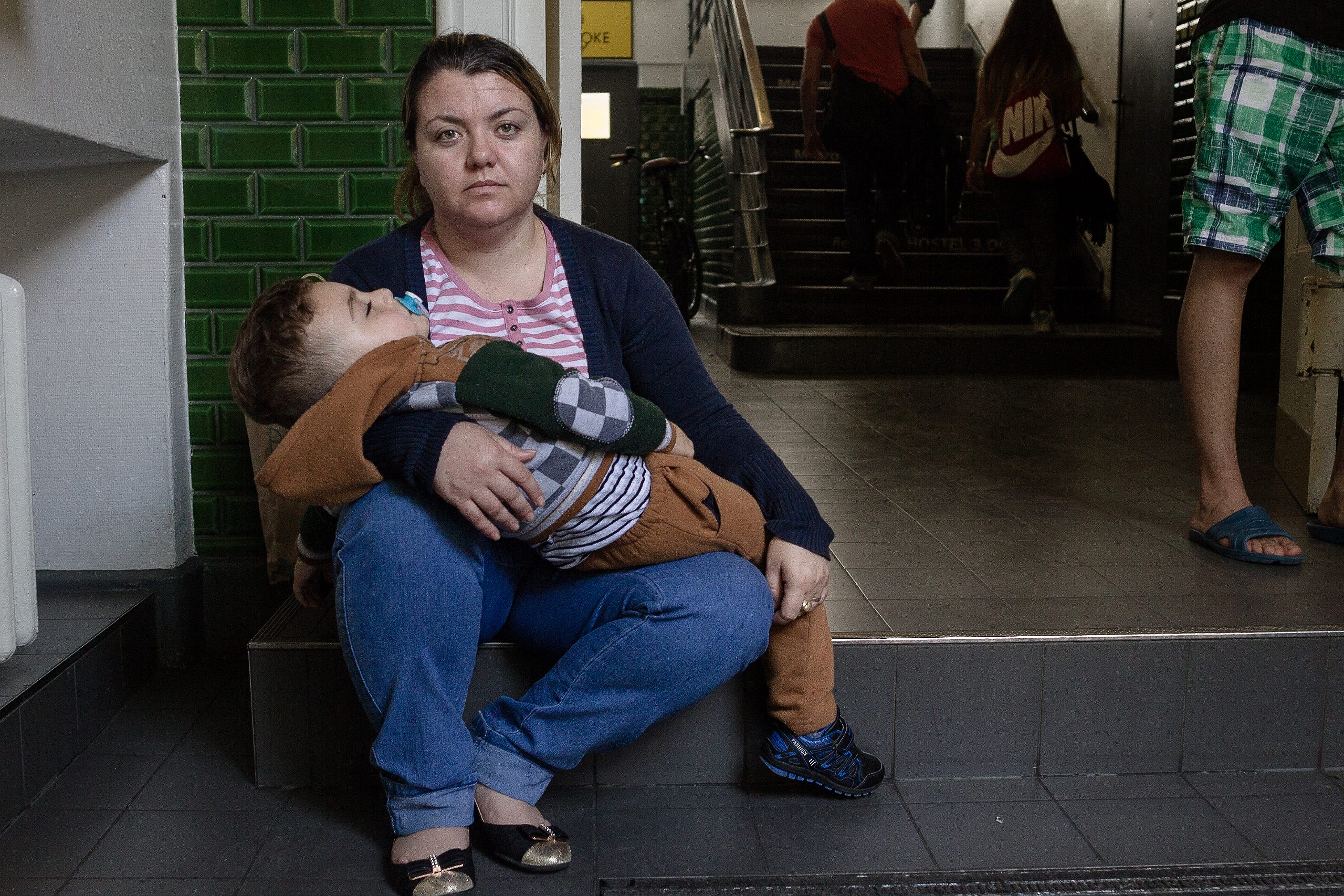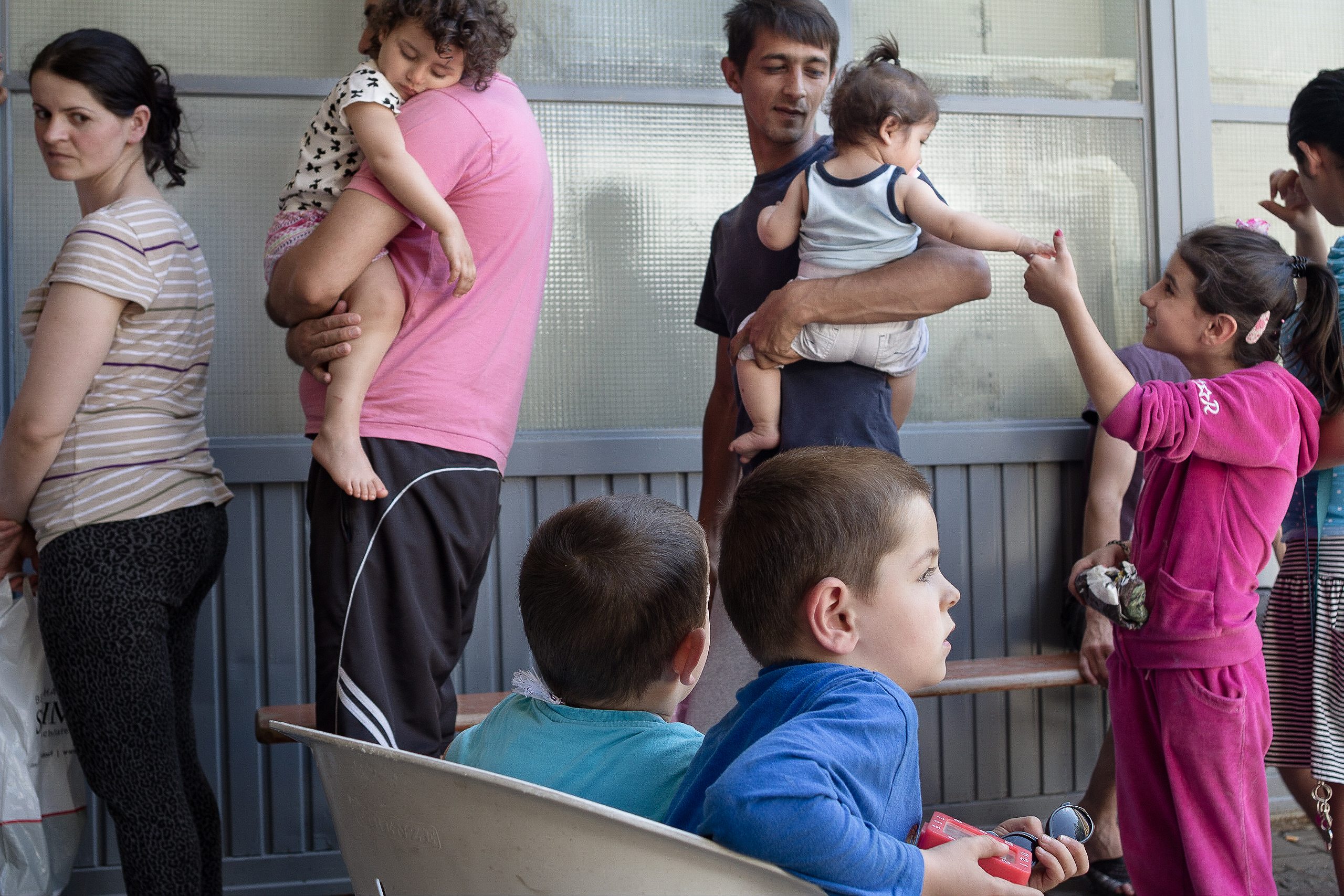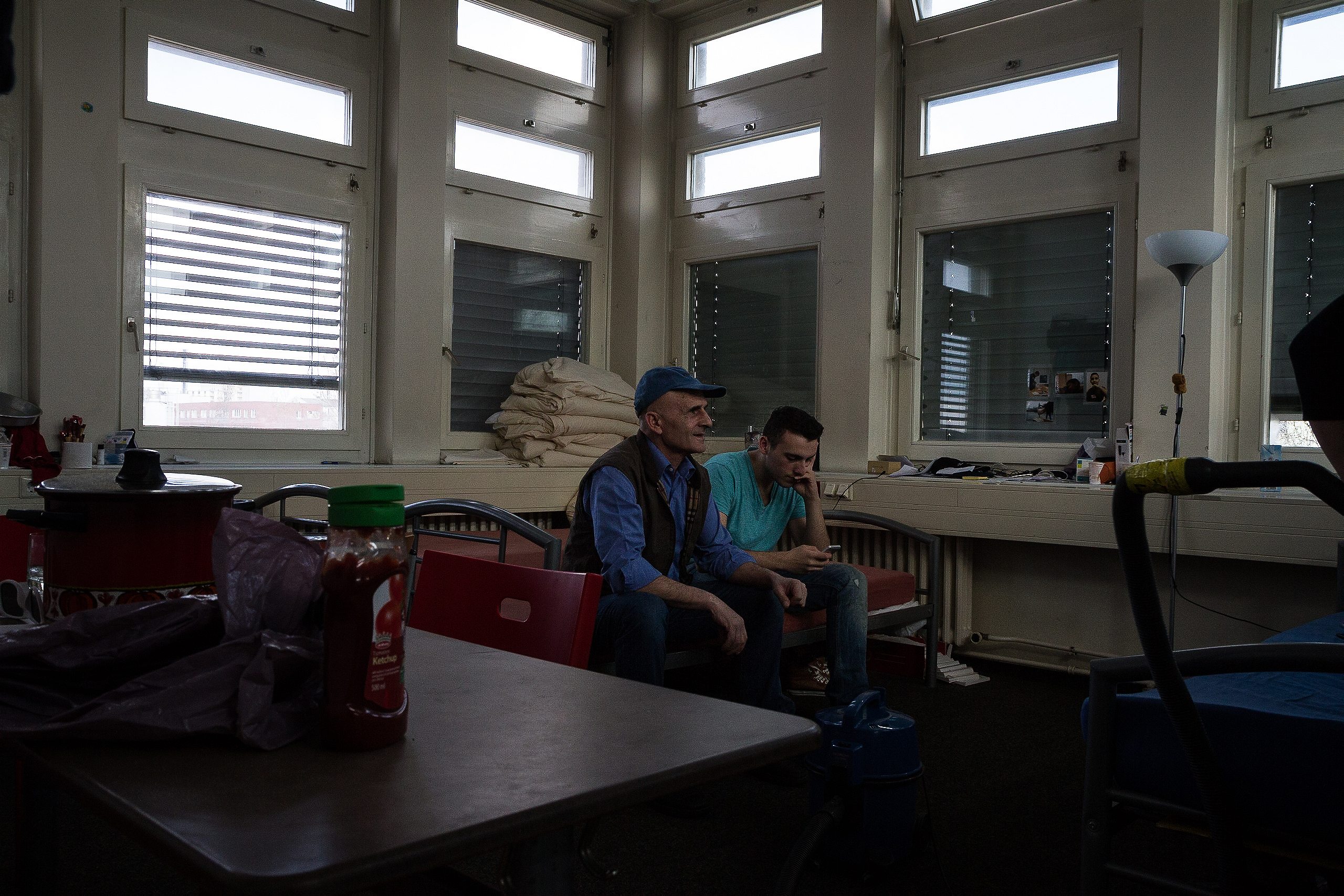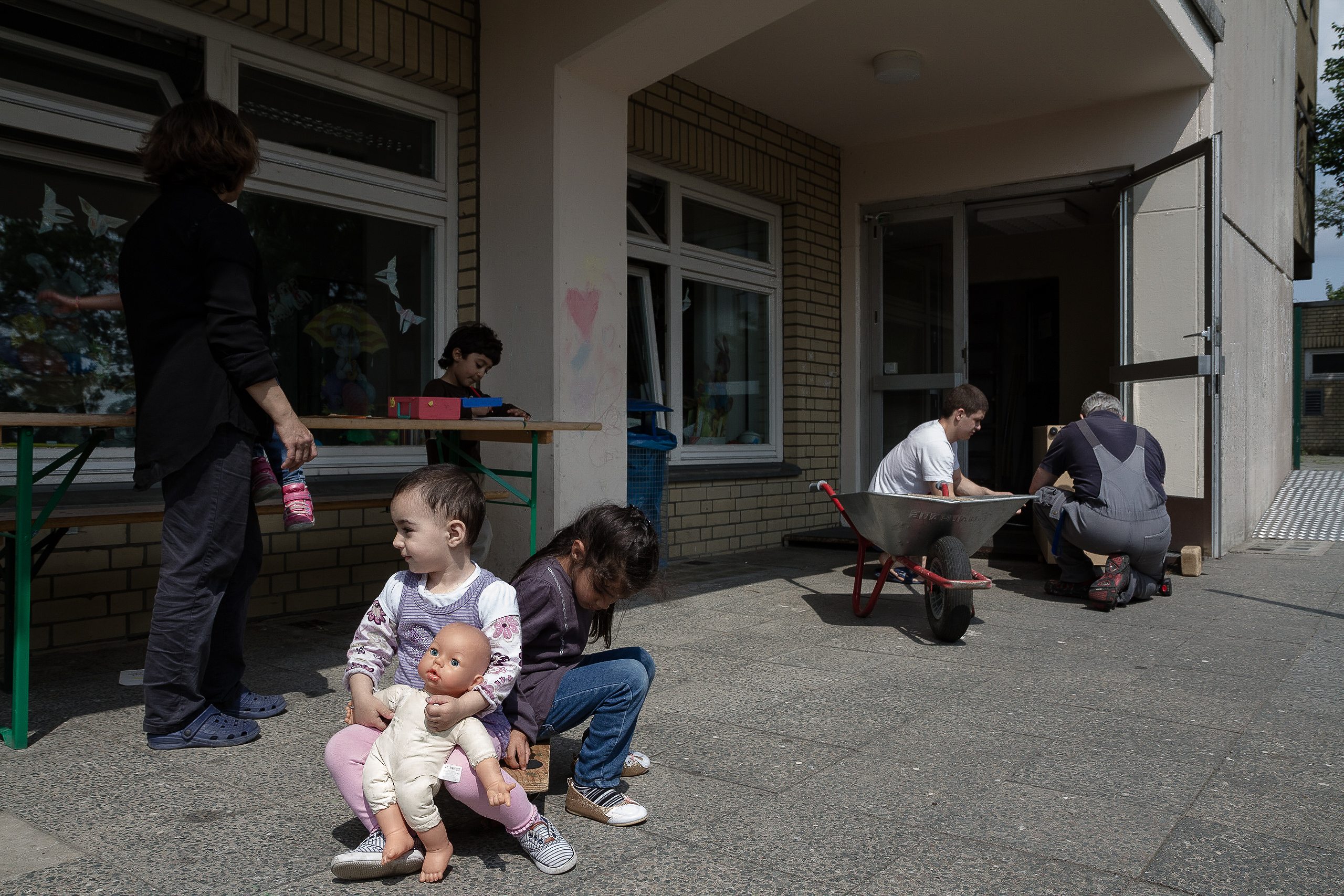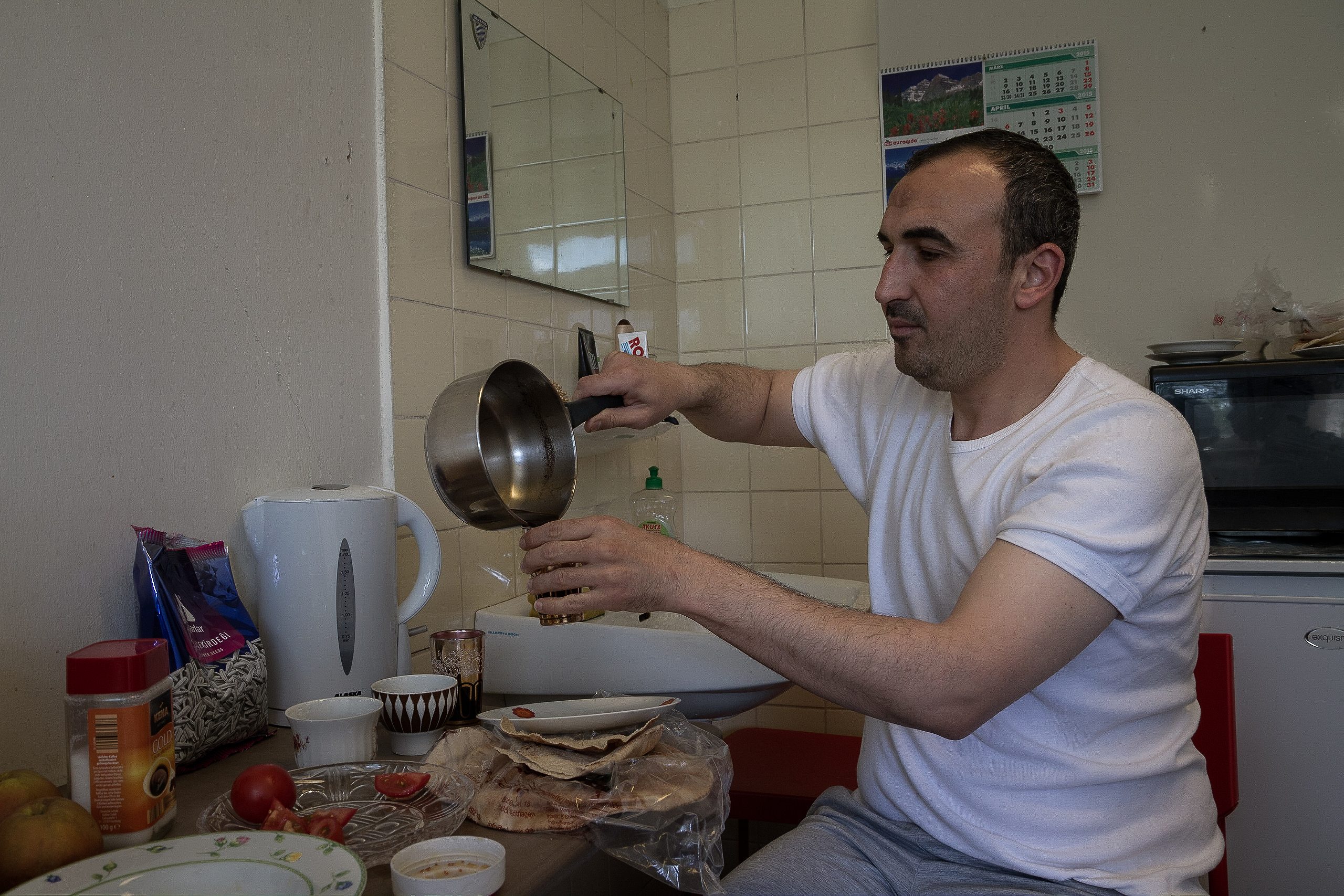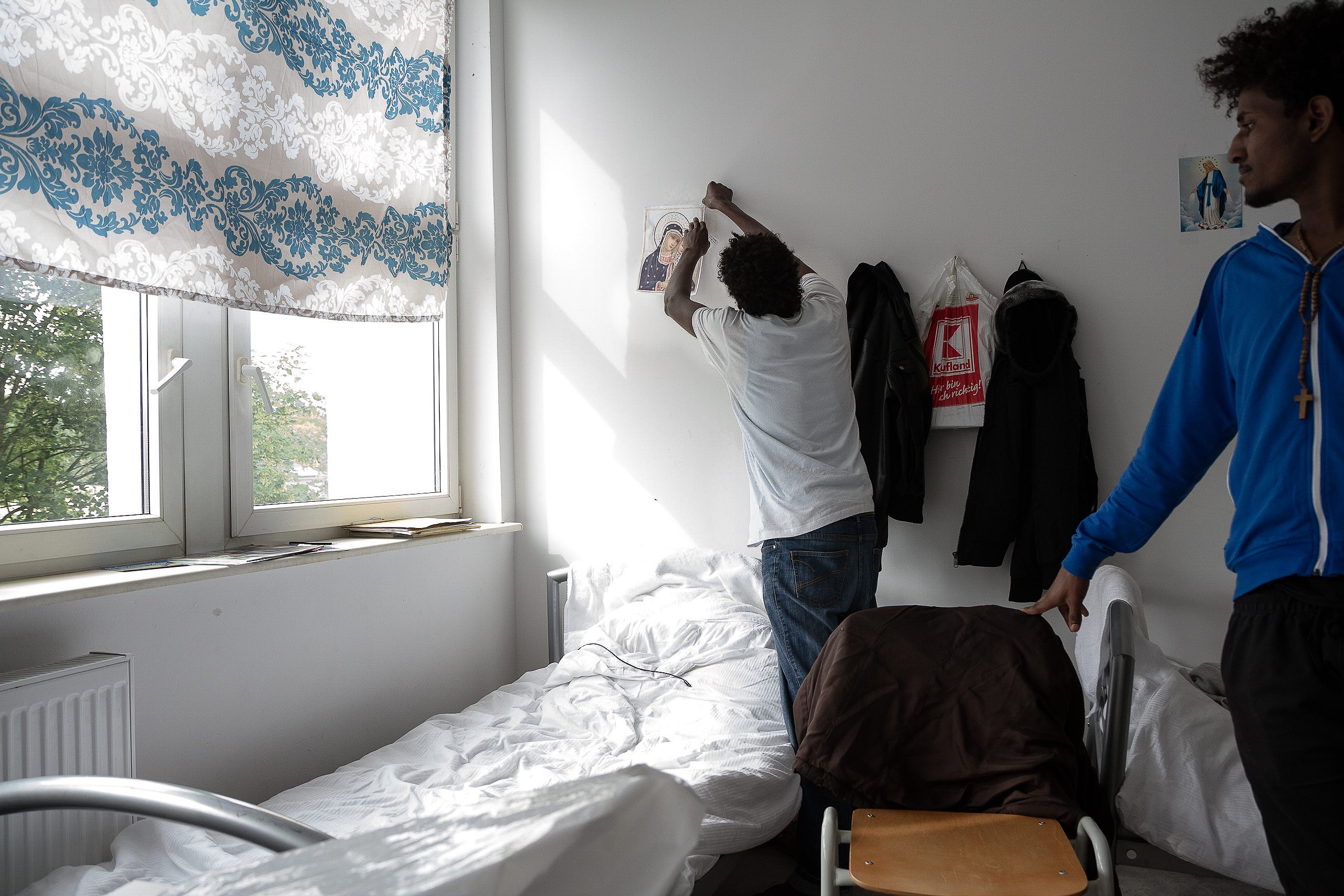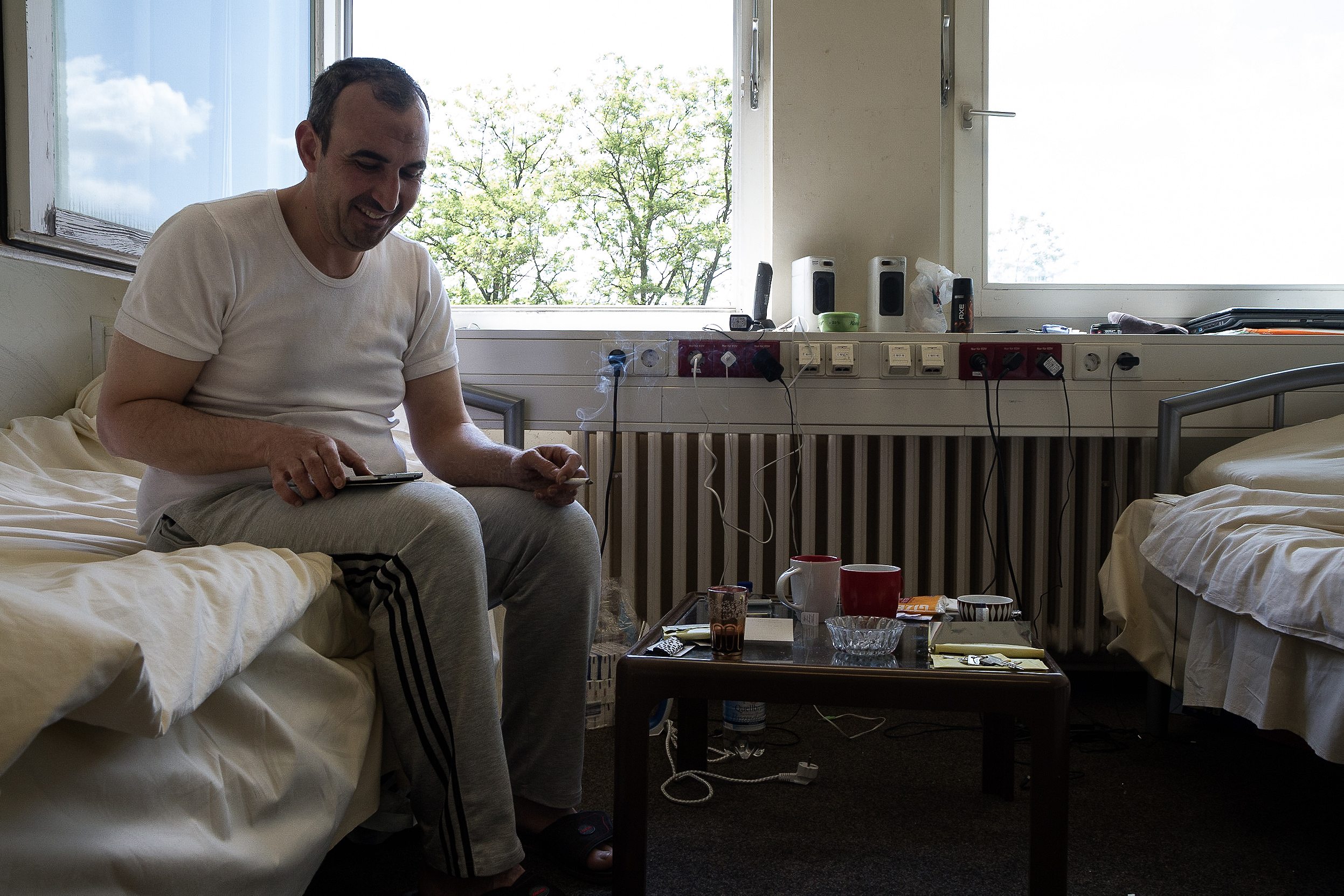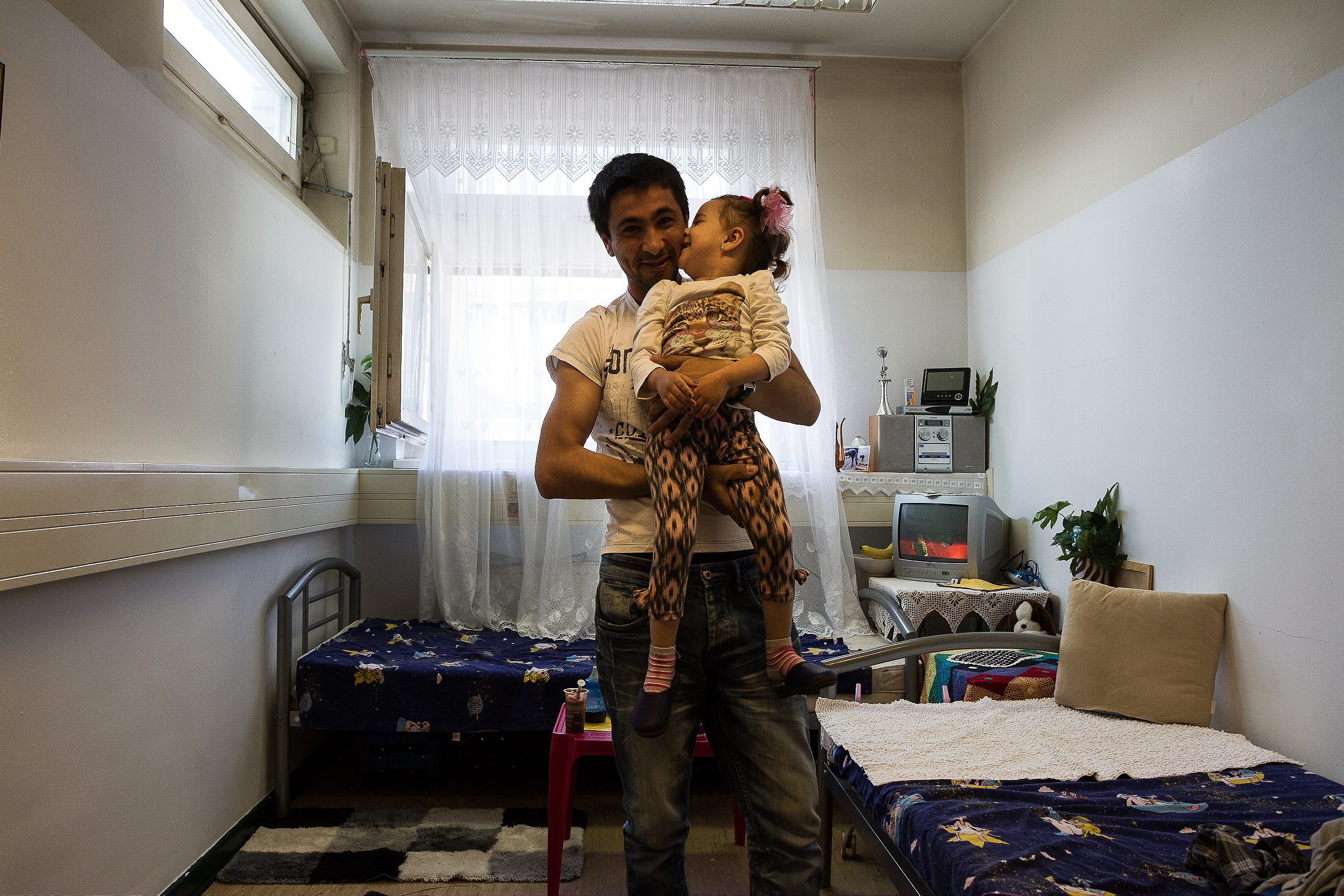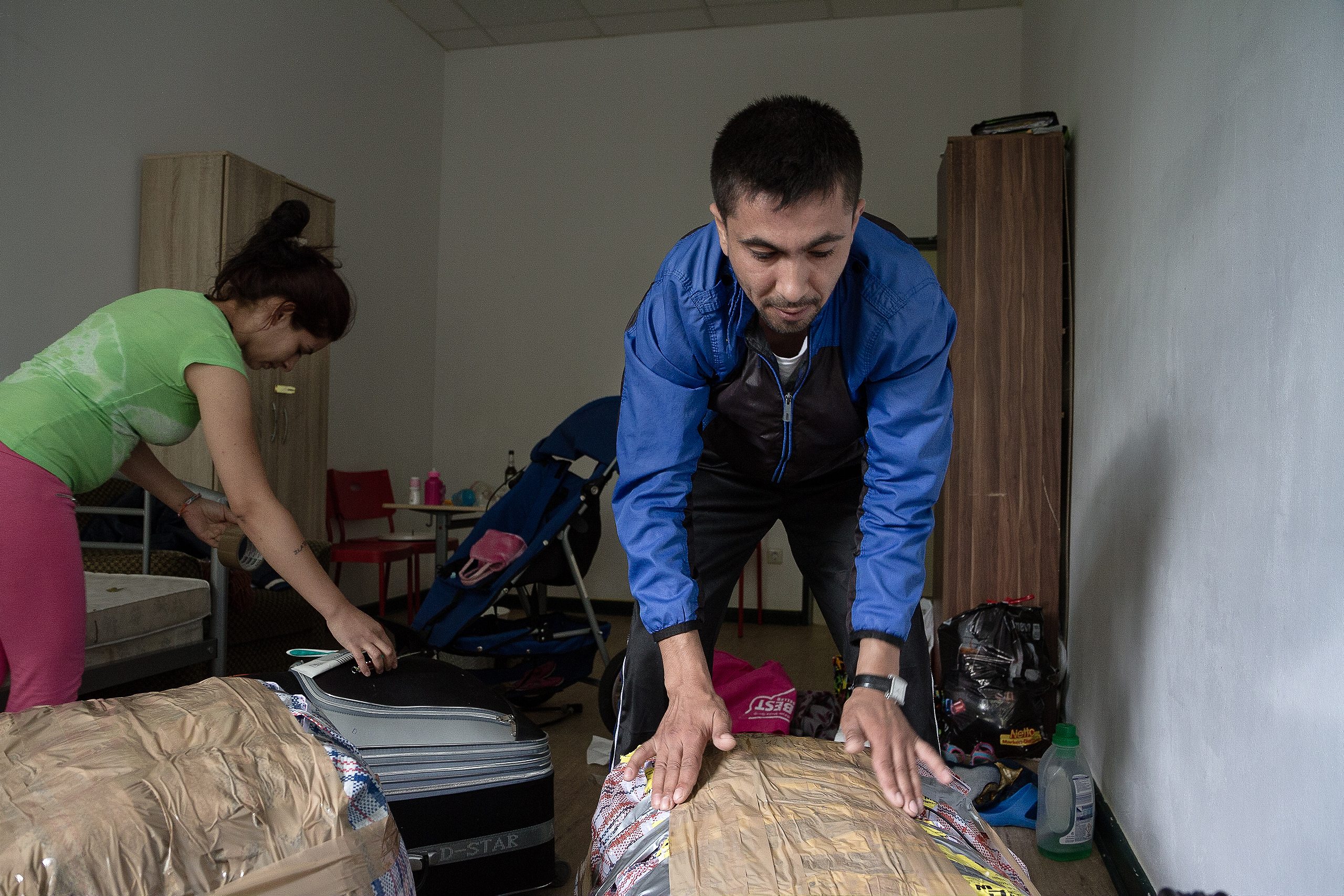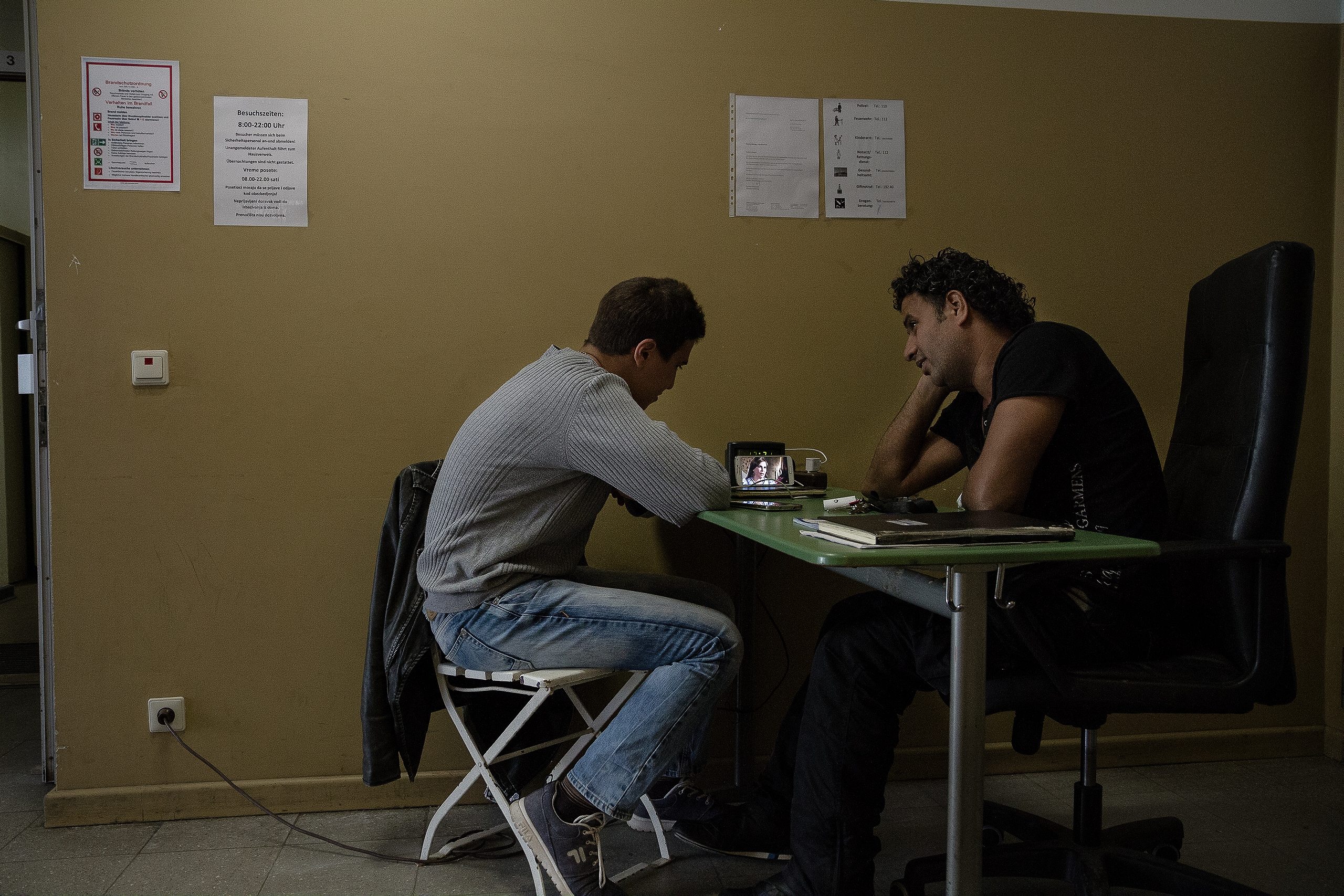Waiting for news about an asylum claim inside a Berlin refugee shelter.
Hameed sat on a chair next to the security desk at a refugee shelter in an industrial neighborhood near the Berlin–Spandau train station. His right knee was in a cast–he had just had surgery–and his crutches were propped up against the wall. Hameed was 22 years old, and came from Kandahar in Afghanistan. He injured his knee fleeing the Taliban. He had made it to Germany through Bulgaria, but his life was in limbo while he waited for the authorities to review his asylum claim, and decide whether he could stay in Berlin or would have to go back to Bulgaria: “I’m in a bad situation. My leg is kaput,” he said. “I don’t want to go back, I’m scared; scared of what they will do to me.”
Hameed is one of a hundred residents living in the shelter. There are 70 scattered around Berlin, filled by the worst refugee crisis in Europe since the end of the Second World War. I spent seven months in the shelter, documenting the daily routines of refugees who had just arrived in Germany. Their stories belied the predominant perspective of the warm, efficient German welcome.
According to legal regulations, all asylum claims need to be handled within three months, but due to the high number of asylum requests, this time fluctuates immensely. Some get an answer within six months and some wait over a year. The average time is about nine months.
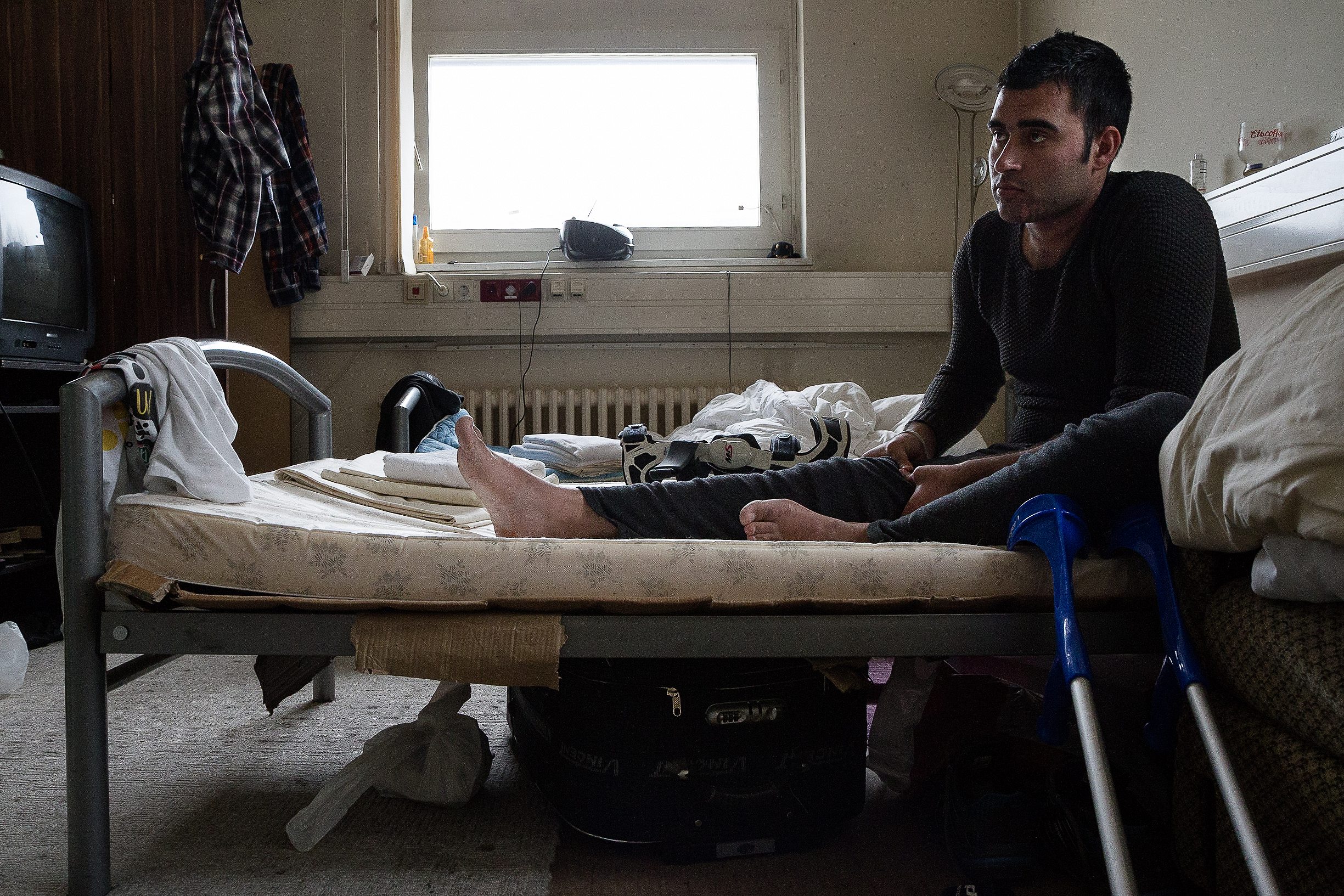
Hameed collaborated with Western forces in Kandahar, first as a translator for the US Army, then his sergeant helped him get a job in an American automotive supply company, where he worked for four years. Then one day, the Taliban came to his family’s home to take him away. He jumped out of a first floor window, tearing a ligament in his right knee, and fled.
At the European Union border in Bulgaria, Hameed got caught. He says the police there were violent, hitting his injured knee with batons and accusing him of smuggling drugs in the bandages. All they could find however, were his painkillers, he said. They confiscated them.
Hameed claims he was told he could see a doctor only after they took his fingerprints and he signed a statement confessing to crossing into Bulgaria illegally. It tied Hameed to the country, as refugees have to claim asylum in the first European country they arrive in. He was put in a refugee camp, sharing a room with 20 or 30 other people.
There was no way Hameed was staying in Bulgaria. The refugee camp was so dirty that he was afraid his leg would get infected, and he was starving: “They gave a slice of bread and a sip of water every day and let us out for the toilet three times a day,” he said. “Maybe eight or nine days passed, I can’t remember, it was [all] one horrible day to me.”
In his asylum application, Hameed says he left Bulgaria with the help of the person who had brought him there: “He took me to the jungle where I waited with others. We were put on a train and went through Serbia to Germany.” He’d planned to get off at Hamburg, but during the journey he met a friendly German couple that told him to go to Berlin instead. Hameed got off at Alexanderplatz station and walked to the nearest police station to claim asylum.
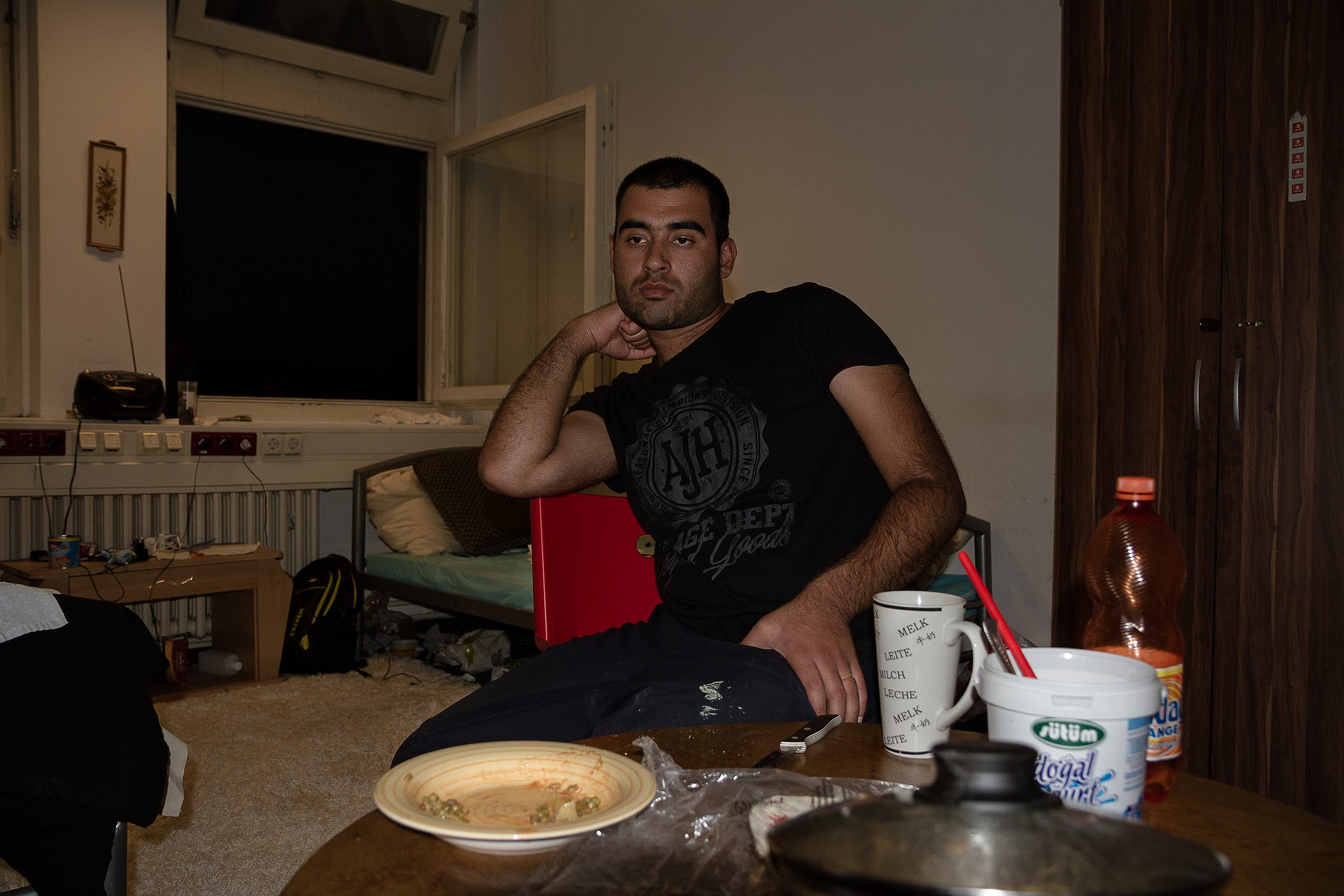
The police took Hameed to an emergency shelter, the first stop in the German asylum system. The shelter was nothing but a gymnasium repurposed with bunk beds, but there was food and medical care. By the end of January, doctors had operated on his torn ligament and Hameed had been moved to a more permanent shelter, sharing a room with a man named Khan from Pakistan, and a man named Dachil from Iraq.
Once Hameed had applied for asylum, there was nothing to do but wait. “I’m wasting my time, my life. I’m here for eight months now,” he said. Hameed wanted to learn German, but all the classes were outside the shelter and Hameed still couldn’t walk properly, which got in the way of his plan for life in Germany: he was going to learn the language, study computer sciences, get a job and bring his family over.
Bored, Hameed started hanging out by the security desk. It was the best spot in the shelter. He could see everybody’s comings and goings, and pick up German from the security guard, a guy named Kevin. Another perk of hanging out by the security desk: Hameed was first to know when the mail arrived, which meant news about his asylum application.
Besides, there was nothing else to do. A few residents found work, as translators for the state, or doing under-the-table shifts at Turkish supermarkets, but you needed to be able to speak German–and walk–for that. Hameed was supposed to get physical therapy, but that never happened, and his knee just got worse and worse. Within a few months of the operation, he’d torn the ligament again.
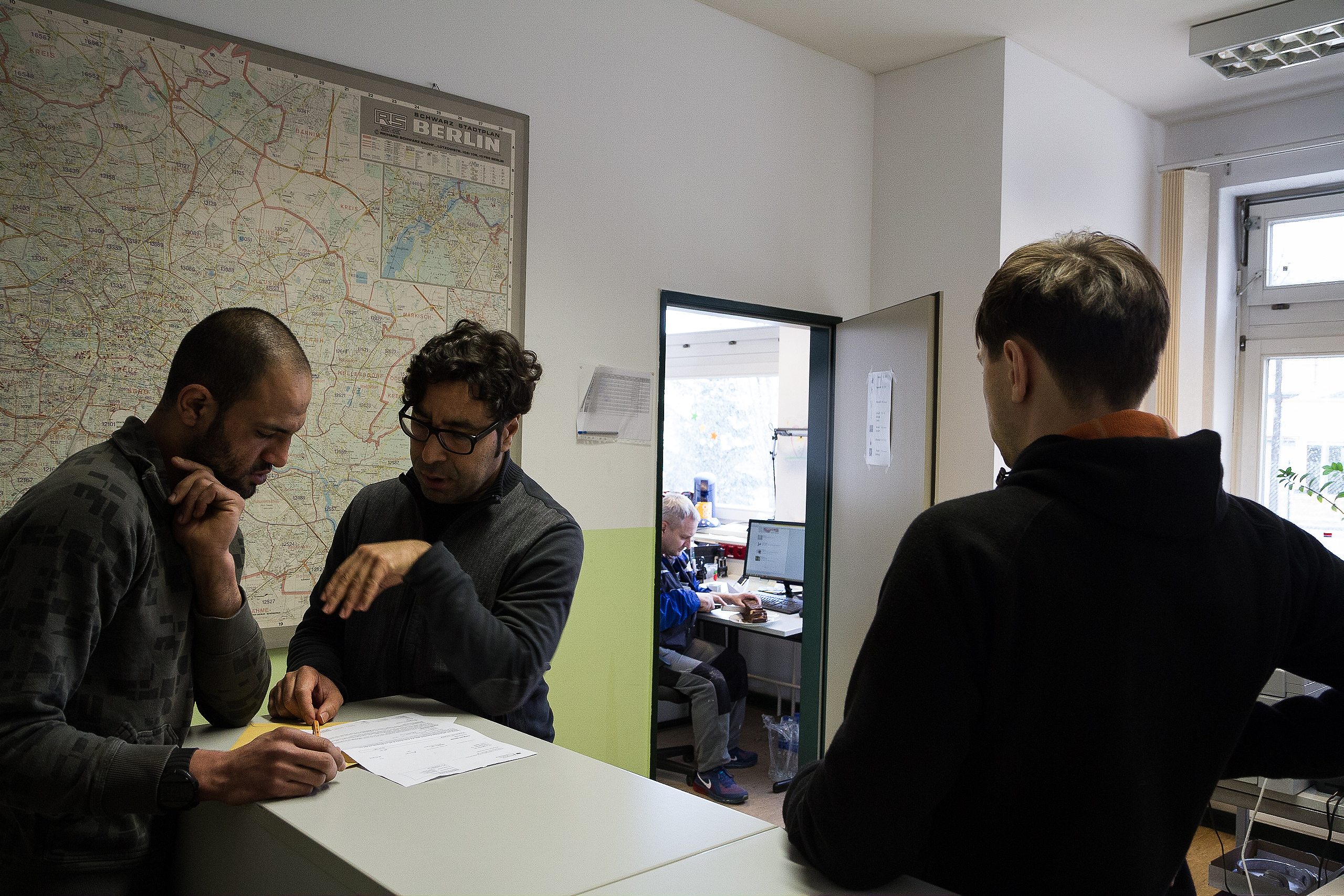
Germany’s system aims to provide asylum seekers with basic support. People get basic help, from meals and shelter, to a small living allowance. But right now the system is overwhelmed and there’s only one social worker for every 100 to 150 cases, and refugees have to put their lives on hold while they wait for a decision.
Hameed’s neighbor Mazin had also put his life on hold for a chance to stay in Germany. Mazin had two wives, two houses and two restaurants in Damascus, Syria. He was a talented cook, he says, which was also his downfall. The local militia liked his food, but did not like paying. Mazin put up with it for a while, but quickly reached his breaking point. He went to see the militia’s commander, who responded to his concerns by ordering a hit on Mazin. He apparently wanted the cook’s middle finger as proof he’d been killed. When the assassin turned up, Mazin says he cut a deal with him: a fee not to kill him, and his ring finger instead: Mazin needed his middle finger to cook. Mazin left Syria.
Mazin wanted to bring the whole family over, but German law only recognized his first marriage, so only his first wife and kids could join him. They were still in Damascus and in danger, so he didn’t want to talk too much about them. His second wife Hiba, however, was safe. She and their children, 9-year-old Zain and 12-year-old Mohammed had arrived joined him in Germany. They had taken the perilous route from Syria to Turkey by foot, from Turkey to Sudan by plane, from Sudan through the desert in a pickup convoy to Libya, then, finally over the Mediterranean Sea to Europe.
In late 2015, just as the German government announced new regulations allowing Syrian refugees like Mazin to stay, Hameed finally got some news about his asylum application in the mail. As soon as his knee healed, he’d be sent back to Bulgaria. He stopped sleeping because another resident told him the police could turn up to deport him in the early hours of the morning. He planned to appeal, but it would be expensive, and would mean more waiting, but he was willing to keep his life on hold for a chance to stay in Berlin: “It’s very hard, they don’t treat you like a human, they just put you somewhere and stop caring about you.”
